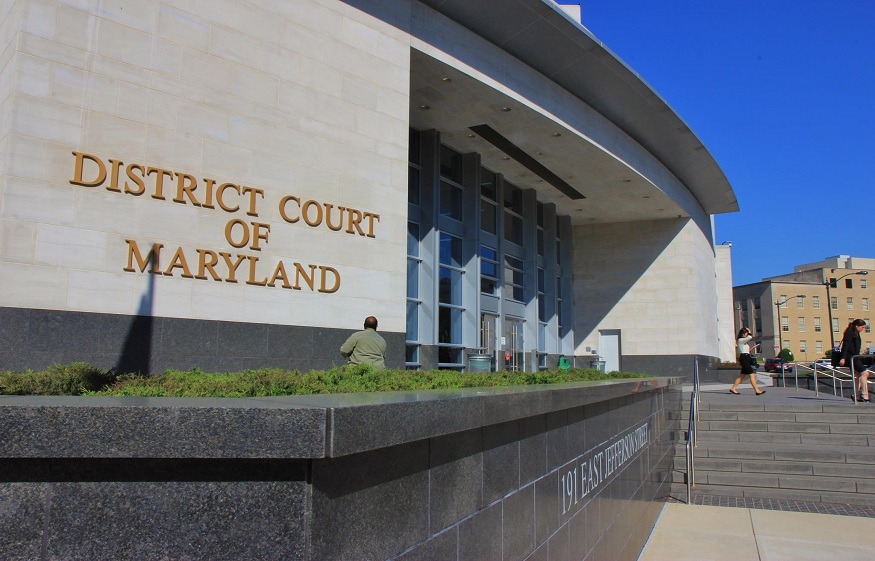The District Court of Maryland has 33 locations throughout the state. Generally, an action should be brought in the county where the defendant resides, regularly carries on business or is employed.

You may appeal District Court decisions to Circuit Court. If you want to secure a successful outcome in your case, you need the help of an experienced criminal lawyer for legal proceedings in the district court of Maryland.
Civil
The District Court has exclusive jurisdiction in civil claims for less than $5000 and concurrent jurisdiction with Circuit Court over certain criminal cases, including misdemeanors and felonies. It does not conduct jury trials.
The Court is a fully state-funded court of record with statewide jurisdiction, created by constitutional amendment in 1971. It replaced the county trial magistrates, justices of the peace and People’s Courts (in some counties) as well as the Municipal Court in Baltimore City.
To establish personal jurisdiction over non-resident defendants, courts look to Maryland’s long-arm statute, which provides that the law of this state may be enforced by the courts thereof against all persons within its jurisdiction, wherever found. Generally, such contacts as contracting to supply goods or services in this state, transacting business here, being injured at this place or deriving substantial income from this state are enough to satisfy the requirements of this statute. The Court also looks to the Constitution to determine whether such power is constitutional.
Criminal
In the District Court, the prosecutor presents a criminal case against the defendant. Its jurisdiction extends to all misdemeanor cases and most violations of the motor vehicle law. It also has concurrent jurisdiction with the Circuit Court in felonies and certain enumerated crimes.
A District Court Commissioner hears a complaint and decides whether probable cause exists to charge the defendant with a crime. In most cases, the defendant will be arrested and brought before the court on a summons or warrant.
Defendants can request that their cases be transferred to Circuit Court for trial by jury. The request can be made the day a trial is scheduled in District Court. Defendants can also request that their cases be transferred to Circuit Court after the District Court Judge orders a jury trial.
Family
In family law matters, District Court judges handle divorces, child custody and visitation, support and other issues such as changing names, enrolling foreign decrees or orders, restraining orders and domestic violence. District Court also has jurisdiction over all landlord-tenant cases, replevin actions and some criminal misdemeanors.
Judges and Magistrates encourage families to try to resolve disputes without going to court through the mediation program. You must choose dates that are convenient for both you and the mediator. The cost of this service is shared by the parties.
If you are representing yourself, make sure that you include your name, address and telephone number in any spaces marked for “plaintiff’s attorney.” You must also sign the document as the plaintiff. You should make copies for yourself, one to serve on the other party and bring the originals to the Civil or Family Department window for filing. If you have served the other party, you must also file an Affidavit of Service with the Court.
Juvenile
A juvenile is anyone under the age of 18. State law dictates that a delinquent act committed by a child is handled differently than an adult case, so cases involving children are heard in the Juvenile Court System.
The court may decide to intervene in a child’s life by placing the child in out-of-home care (such as foster care or residential treatment), imposing probation, ordering restitution or providing counseling or services. In addition, if a child causes injury to another, the Master can issue an order for restitution which will require the delinquent to pay to the victim for personal property damages and/or medical, dental, hospital or funeral expenses.
Parents retain a substantial constitutional right to direct the rearing of their children, and courts must give great weight to their claims. However, a court can assume jurisdiction over a neglected or abused child and remove them from their parents’ custody under the parens patriae power.





